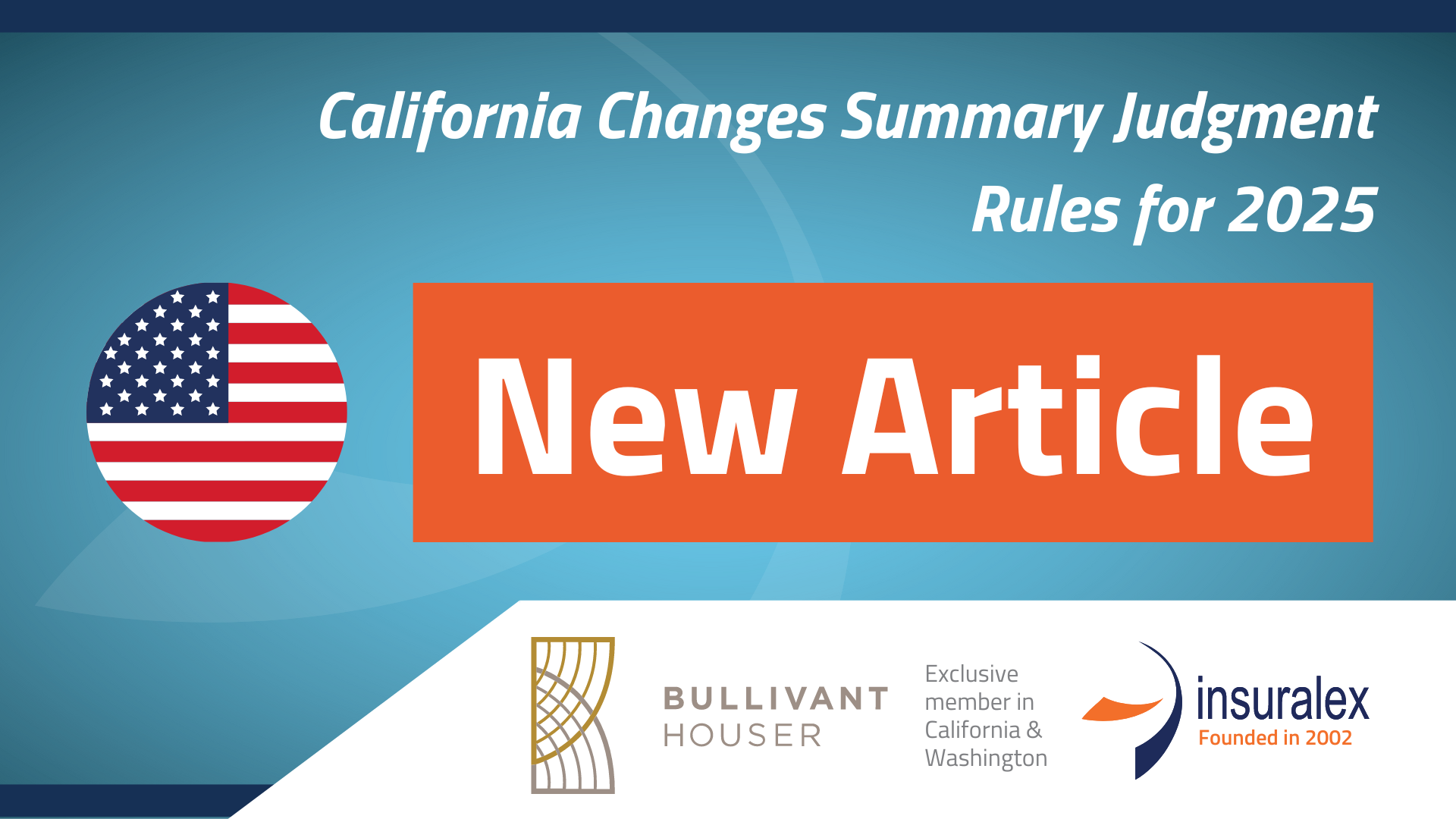
On July 15, Governor Newsom signed AB 2049, which changes the rules for summary judgment motions in state court effective January 1, 2025. While there are a number of deadline changes, the largest change is a slight expansion of the opportunity to seek summary adjudication of issues (the California version of a partial summary judgment).
Under current law, a motion for summary adjudication may only be filed if it completely disposes of a cause of action, an affirmative defense, a claim or damages, such as punitive damages or an issue of duty. The amendment will also allow summary adjudication of legal issues that do not completely dispose of a cause of action, affirmative defense, or duty issue, but only if the affected parties stipulate that the motion would further judicial economy, and if the trial court agrees to authorize filing. The ability to seek summary adjudication of non-dispositive issues is likely to be more theoretical than real.
The deadline changes adjust deadlines by six days, thus they are relatively minor, so long as attorneys don’t forget them:
– Summary Judgment and Summary Adjudication motions must be filed 81 days before the hearing date (plus time for service), not 75 days as provided by current law, Code of Civil Procedure § 437c.
– Opposition papers are now due 20 days before the hearing, instead of 14 days as provided by current law.
– Reply papers are now due 11 days before the hearing, not five days as provided by current law.
The amended statute also makes explicit the long-standing rule that new evidence is not permitted in the Reply. It also makes a variety of procedural changes to the procedures for objecting to evidence and incorporation of matters already in the court’s file.
In practice, the expansion of the ability to move for summary adjudication is unlikely to make much difference because of the requirement that both sides agree to submit the issue by motion, and the requirement that the court authorize the filing before the motion can be brought. It is more likely that mediators will urge the parties to agree to such motions where a legal issue not otherwise capable of summary adjudication is the principal obstacle to resolution.
Andrew B. Downs – Bullivant Houser Exclusive Insuralex ‘s member in California & Washington



